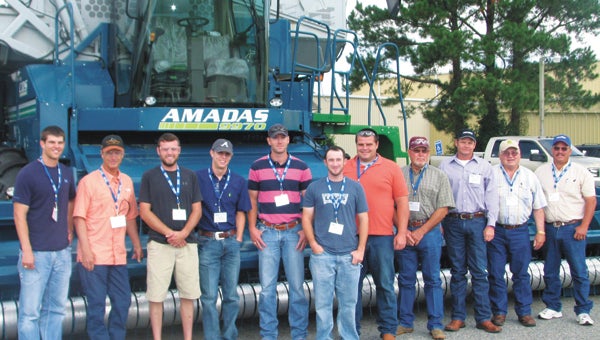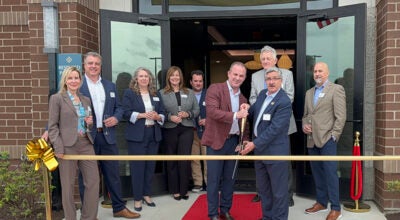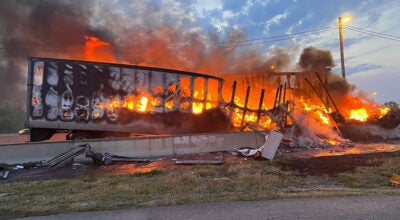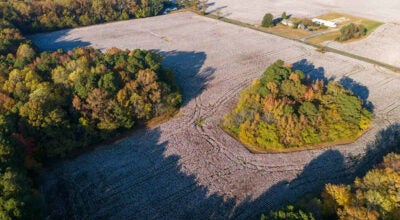Southwest farmers tour Suffolk
Published 10:43 pm Tuesday, August 5, 2014

Cotton producers from Texas, Kansas and Oklahoma traveled to Virginia and North Carolina this week as part of the National Cotton Council’s Producer Information Exchange program. On Tuesday, they visited Amadas Industries’ Suffolk locations on Holland Road and Kenyon Road, where they posed for a photo in front of some peanut equipment.
Ten Southwestern cotton producers are spending this week in Virginia and North Carolina learning how their counterparts in the Southeast work.
The National Cotton Council’s Producer Information Exchange program annually takes about a dozen producers from each of the country’s four cotton-producing regions and transports them to a different region to learn about cotton production in a different part of the country.
“It’s kind of a leadership program for cotton growers,” said Scott Kohne, a market acceptance manager with Bayer CropScience, which sponsors the program through a grant to The Cotton Foundation. It also gives them ideas on how farmers in each region adapt to the many changes afoot in agriculture — in particular the weather, regulations and economics.
The 10 producers visiting the Southeast this week spent Tuesday in Suffolk, where they toured Amadas Industries — which gave them insight into how peanut digging equipment is developed and manufactured — and visited the Tidewater Agricultural Research and Extension Center. They also visited Isle of Wight County to see country ham curing at Darden’s Country Store and cotton production at Windsor-area cotton farms.
The farmers — most of whom didn’t know each other before this week — said it was helpful to them to connect with their peers in their part of the country and to learn how it’s done in other parts of the country.
“It’s an opportunity to come to North Carolina and Virginia and learn how farmers do things up here,” said Andy Carthel of Friona, Texas. “It was a no-brainer.”
He said farmers in his part of the country are just now starting to see weeds that are resistant to traditional herbicides, so they’re learning from folks in this area, who have been dealing with them for some time.
“There’s other chemicals you can spray that can create a barrier,” Carthel said. “You’re not able to kill them, but if you can keep them from coming up, you’ve effectively done the same thing.”
Conversely, Brandon Bortz of Pratt, Kan., said they’re dealing with things in the Southwest — like water rights issues — that are only starting to be mentioned in the Southeast.
“We’ve been dealing with water rights issues for 20 years,” he said. “The drought hasn’t helped that. It’s two different worlds.”
Bortz said he’d “picked up a few tricks” despite the fact that growers in his part of the country “just don’t fathom peanuts.” He grows corn, wheat, sorghum, soybeans and other crops in addition to raising cattle.
He said the connection with peers was one of the most helpful things about the program.
“When you’re on a tractor for two weeks at a time, you see your wife, your dog and maybe your parents,” he said. “It’s nice to talk to someone else.”
Cecil Kalina of Miles, Texas, said the lay of the land in Virginia and North Carolina lends itself to small farms, something unheard of in Texas.
“The country’s real interesting,” said the farmer, who raises wheat, sorghum and cattle in addition to cotton.
Carthel agreed on the difference in the landscape.
“It’s so beautiful and green,” he said. “There’s trees everywhere, which I’m not used to. You can see for 20 miles back home.”
The groups spent Sunday and Monday this week in Raleigh, N.C., with orientation and a visit to Bayer CropScience’s headquarters, the company’s Bee Care Center and a cotton farm.
Thursday and Friday were to be spent learning about a variety of agricultural operations — wood pellet manufacturing at Enviva’s plant in Northampton, N.C., peanut processing, a lumber mill, cotton varieties trials, seed production, pickle processing at Mount Olive Pickle and sweet potato and swine production.






